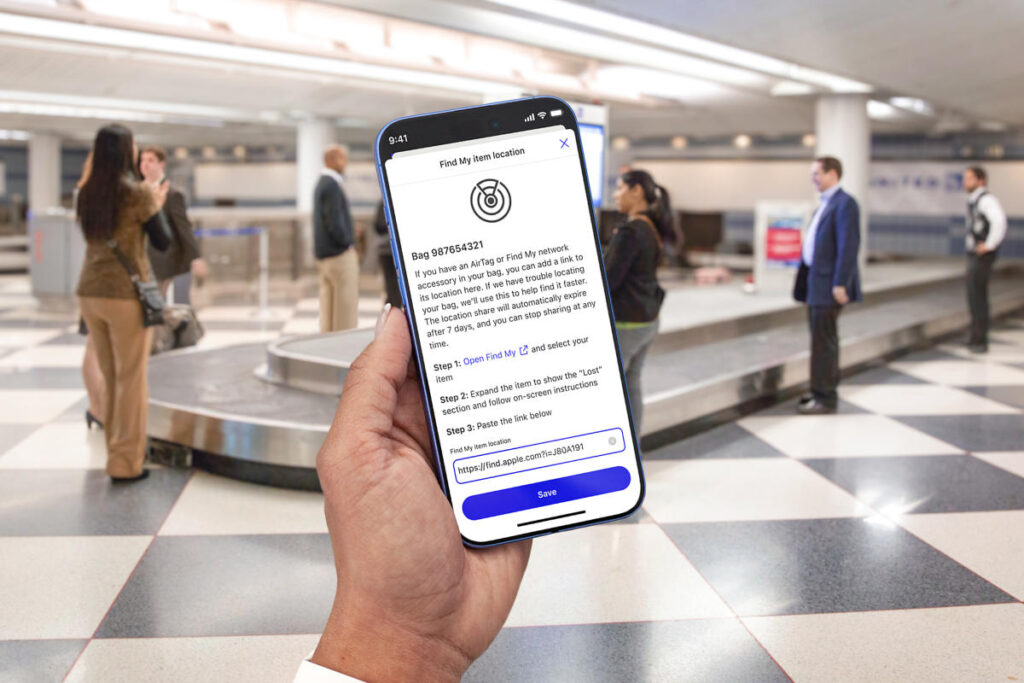In a move to enhance customer experience during holiday travel, Apple has introduced a new feature for AirTag owners that allows for the sharing of lost item locations directly with major airline customer service systems. United Airlines and Air Canada are the pioneering partners to adopt Apple’s “Find My Share Item Location” feature. This functionality is integrated within Apple’s Find My app, enabling travelers equipped with an AirTag or other connected accessories to communicate the precise location of their lost luggage. By doing so, the airlines can expedite the process of locating delayed or lost items, thereby minimizing the inconvenience often associated with travel mishaps.
The new feature is accessible through Apple’s latest operating systems, including iOS 18.2 for iPhones, iPadOS 18.2 for iPads, and macOS 15.2 for Mac computers. Using the Find My app, customers can generate a secure link that reflects the location of their lost item. This link can then be shared with airline customer service representatives, allowing them to track the missing luggage more efficiently. This development not only streamlines the recovery process but also acknowledges the active role consumers have taken in using AirTags to monitor their belongings during travel.
AirTags have gained popularity among users for various travel-related scenarios, especially in tracking luggage. There have been notable instances where AirTags revealed discrepancies in baggage tracking information provided by airlines. For example, in one reported incident, a customer was informed by United that their bag was not in the airport when the AirTag indicated otherwise. This led to suspicion regarding the airline’s handling of baggage, as the luggage unexpectedly traveled a significant distance away. With this new integration, such misunderstandings are expected to decrease, as airlines will officially recognize and utilize AirTag data in their customer service processes.
Apple emphasizes the privacy and security aspects of this location-sharing feature. The generated links are encrypted and designed to expire after seven days, ensuring that the information remains confidential. Customers retain control over the sharing process, able to end the location sharing at any moment or automatically terminate it once the lost item is recovered. This level of security is crucial in building trust with users, who must rely on the airline’s systems to reunite them with their belongings.
Despite the advent of this new feature, many airlines already have existing luggage tracking systems integrated within their apps. Apple’s AirTag feature serves as a complement to these systems, offering an additional layer of transparency for users. This is particularly beneficial in scenarios where traditional airline tracking information may lag behind real-time data from AirTags. The integration effectively empowers customers by providing them with more tools to track their luggage accurately, which can potentially reduce stress during travel.
Looking ahead, Apple has indicated that international partnerships with other airlines are in progress, with nearly 20 airlines reportedly interested in integrating this feature into their systems. Future partnerships could include airlines such as British Airways, Delta Air Lines, and Qantas, thereby expanding the reach of the AirTag’s capabilities worldwide. This collaborative effort between Apple and various airlines signifies a pivotal step towards enhancing the travel experience, ensuring that travelers can confidently locate their belongings and efficiently communicate with airline representatives during their journeys. The innovative merging of technology and customer service reflects a broader trend towards more interconnected and responsive travel solutions, especially during peak travel seasons like the holidays.

